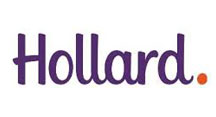As you build your business as a sole trader, you will encounter risks that create the need for insurance protection. You’ll appreciate important advantages to this business approach. You control your business, giving you freedom to operate your business as you see fit. You don’t answer to anyone, except perhaps local regulations. The life of a sole trader can be advantageous.
However, you’ll also find downsides. Even if you haven’t hired your first employee, your occupation places you in front of a vocal public, who will want protection if something goes wrong. Social media is often key to your business. One hit to your reputation by a complaint you don’t manage well can damage your business. As a sole trader, you are responsible for the entirety of your business. Taxes, finances, purchasing, profitability and working safely you are accountable for it all. You have no legal shield to hide behind if something goes wrong. You have personal liability for your financial mistakes and your business errors, as well.
Even when you’re not at fault, if a customer takes legal action against you, you’ll need legal guidance to manage any negligence allegations. A good business insurance broker understands the consequences of property damage and bodily injury, and they work hard to protect you and your business reputation after a covered incident.
What kinds of insurance are available?*
Insurance provides sole traders with sleep-at-night protection. As a trader, you’ll need to balance your budget with all the insurance covers available. Where do you start? Here are some programs to manage your risks through risk transfer the purchase of insurance.
- Public liability insurance: This important cover may protect you against allegations of negligence. For example, if you’re installing drywall and puncture a copper plumbing line, subsequent water leakage can cause damage, including mould. Your jurisdiction may require public liability and should be your first choice when selecting cover.
- Commercial motor insurance: If you’re driving any vehicle in your business, you’ll need commercial motor cover. Don’t rely on your personal auto policy because many contain a business-use ban.
- Product liability: When you supply or furnish products, a product liability claim can arise if an injury occurs, even if your customer misuses that product. This cover can provide an investigation, defence and settlement of product liability claims lodged against you.
- Personal accident and sickness: One of the downsides of sole trading is you lose income if you are unable to work. Many will normally weather a few days off work, but longer periods of disability could bankrupt any sole trader.
- Marine cargo: Freight theft is growing rapidly as parcel pirates hit Australians. Commodities like construction materials are frequent targets of crooks. Their theft may delay or even cause you to lose a gig. Marine cargo cover helps to reduce theft losses.
- Business insurance pack: If all these different options seem confusing, you might consider the business insurance pack to provide much of the protection you need in one policy. Insurers design these policies especially for sole traders. They offer economy, one renewal date and solid payment options.
If you’ve not yet hired employees, the above choices can offer you most of the protection you’ll need. With strong insurance cover, you can focus on building your business and improving your craft.
Where should sole traders start when looking for insurance?*
There are many insurance agents available, but not all understand the risks sole traders face or act on behalf of the sole trader. You have unique risk exposures, and as a sole trader your personal assets are at risk. Work with a business insurance broker who understands the problems you encounter in your unique trade. Contact the team @ Public Liability Insurance Australia. We will help you find an appropriate policy for your unique business risks.





